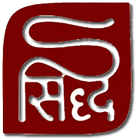Tag: MK Gandhi
-
Hind Swaraj: M K Gandhi
by
Mahatma Gandhi’s collected works — writings, speeches, letters, interviews and telegrams — have been meticulously compiled with appendices of relevant background material by the publications division of the Government of India. The collected works runs into 100 volumes of some 500 pages each. The people who have read through or sampled these writings say that…
